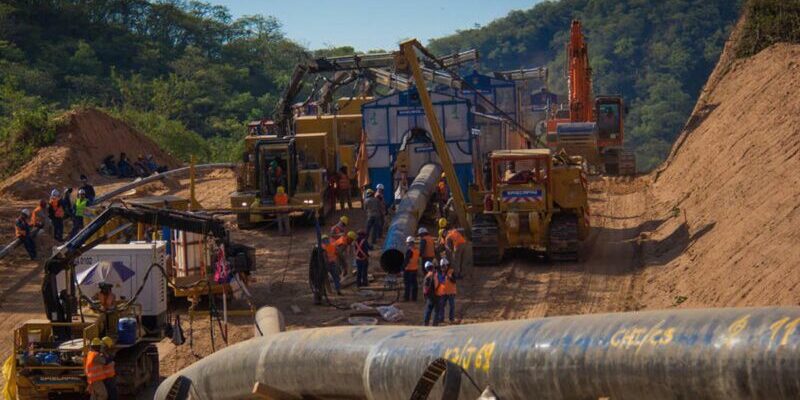Despite massive pressure from a number of rights and environmental organizations, TotalEnergies said last week that it has begun digging oil wells in Uganda.
The Chinese National Offshore Oil Corporation (CNOOC) and TotalEnergies agreed to a $10 billion deal last year to develop Ugandan oilfields and transport the petroleum to Tanga, a port on Tanzania’s Indian Ocean, through a 1,445-kilometer pipeline.
“Drilling began in July to start production in 2025”, TotalEnergies said. In Kampala, however, the Petroleum Authority of Uganda (Pau) said “the drilling of development wells” began on June 28.
“Over 400 wells are expected to be drilled to produce about 190,000 barrels of oil per day at peak when production starts in 2025,” the Pau stated.
“Three rigs have been lined up for drilling operations,” said Alex Nyombi, Pau’s director of development and production.
“We currently have one rig up and running… the second rig is undergoing final test and checks… while the third rig components are being assembled and are expected to start operations in October 2023,” he said.
By incorporating sustainable technology and methods and assuring ethical resource extraction for future generations, the rigs in Uganda are built to have as little of an impact on the environment as possible. Ali Ssekatawa, director of legal and corporate affairs at Pau explained.
However, according to Friends of the Earth France and Survive, the drilling is taking place “in the very heart of the Murchison Falls National Park, Uganda’s oldest and biggest protected natural space.”
“Total continues its greenwashing, trying to convince that its oil wells will not affect the local fauna thanks to the beige color of the drilling towers ‘to look like the surrounding savannah’,” the two groups said in a statement. They mentioned that 30 of the 400 wells scheduled for boring will be located inside the park.
According to Human Rights Watch (HRW), the project would have terrible effects on the environment and nearby populations.
“The pipeline is a disaster for the tens of thousands who have lost the land that provided food for their families and an income to send their children to school, and who received too little compensation from TotalEnergies,” HRW said.
The business claimed to have provided just compensation and that it will “continue to pay close attention to respecting the rights” of the impacted communities.
![]()




